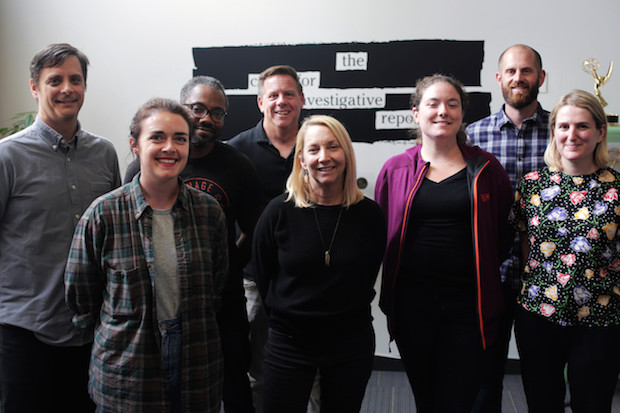When you listen to a podcast, how often do you find yourself searching for additional information online, such as the names of the people mentioned, or images of places spoken about in the episode? And what if you could get these materials just by texting the host of the podcast?
This is the approach the Center for Investigative Reporting (CIR) has been testing with a tool called Amplify. The tool works as an SMS chatbot that enables the audience of its Reveal podcast, co-produced with Public Radio Exchange (PRX), to text a number while listening in order to receive additional information about what is being discussed in an episode.
Amplify has already been tested with two Reveal episodes: one about in vitro fertilisation, published in June, and another one that aired on 23 September about the protests taking place in Berkeley, California.
At different stages during the episodes, podcast host Al Letson invited listeners to text a number and a keyword to receive materials such as charts, pictures or videos. The assets were chosen beforehand based on what the team thinks people would be interested in seeing, and triggered automatically.

"People really like things around data visualisation, because to craft big trends around numbers is hard when you're listening," said Hannah Young, Reveal's director of audience.
"They also love photos of the characters and the stories, videos or anything that gives them more insight into a scene and helps them cue in to what we are talking about. Based on that and what we already have for a story, we'll write it in the script."
The idea for Amplify came from a design sprint CIR participated in with the d.school at Stanford University back in January 2017.
The aim was to connect listeners of the podcast, which range between 1.5 and 1.7 million per month, with other content produced by the organisation in a way that "met listeners where they are". Using SMS technology seemed like the obvious and most accessible option, she added, since people are likely to already be on their phone or have it near them when they are listening.
In the few months spent developing Amplify, CIR regularly conducted user research. They found that people would often look up things on Google or Wikipedia as they were listening, so they designed the tool to "add value to the story".
"People who listen to Reveal are not only interested in the news we cover, but also in journalism – many are journalists themselves or studying to become journalists, and we found a lot of them would go and do their own research about the stories we were covering," said senior digital producer Sam Ward.
"Realising that news can drive that behaviour in people was a great insight, so we wanted to find something that tapped into people's desire to dig deeper into stories. The idea of being able to deliver them additional assets or pieces of content that they can't necessarily get any other way really made sense with that user behaviour."
The tool is still in its development stages, and the team has been experimenting with different prompts that may lead to more engagement with the audience. For example, the second test in September included questions for listeners about what they thought of protesting, and how they found the experience of interacting with the chatbot. Some 2,600 people used Amplify during that episode, with the team sending around 12,500 text messages.
CIR has recently received a grant from the Lenfest Institute to test Amplify through a partnership with WHYY radio station in Philadelphia. This time the tool will be tested with a broadcast audience, as Reveal also airs as a weekly public radio show in the US. The episode will tackle immigration and is scheduled to air in late October.
"They are very different audiences. Podcast listeners have a lot of control, they can stop and start a podcast, they can finish it later...with broadcast your listeners are coming in potentially halfway through, or maybe they're listening while driving or cleaning," explained Young.
"We will test a version of [Amplify] just in Philadelphia for that broadcast audience, and we are excited to learn more about whether this is something people listening to the radio would want to use too."
Free daily newsletter
If you like our news and feature articles, you can sign up to receive our free daily (Mon-Fri) email newsletter (mobile friendly).
Related articles
- The Public Method: redefining how to measure journalism's value
- Why user needs have the power to stop audiences feeling overwhelmed by the news
- How FT uses polls to engage readers and grow subscriptions
- Predictions for journalism 2025: communities over clicks, trust over traffic
- How The Telegraph turns community into content












